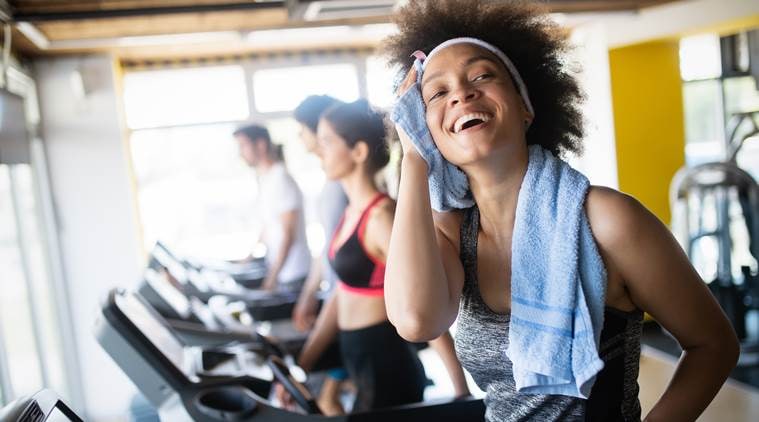 Before any part of the gym paraphernalia touches your skin, make sure you clean the surface. (Source: Getty/Thinkstock)
Before any part of the gym paraphernalia touches your skin, make sure you clean the surface. (Source: Getty/Thinkstock)
Having the time to work out is a blessing, given that it is important for the overall health of a person. Science says that among other things, regular workout sessions do wonders for the skin. By increasing the blood flow, exercises reduce stress-induced acne, and what can be better than this, right? It is believed that a workout session can also expose you to conditions wherein the acne-causing bacteria and yeast can thrive. Here is what you need to do to prevent post-workout acne; read on.
Remove your makeup
Before you hit the gym, remove your makeup. Surely you must not be in so much hurry so as to begin a workout session with heavy makeup on. Dermatologists say that when we exercise, there is an increased flow of blood to the skin. This causes the pores to open. When there is a layer of makeup on the skin, the sweat and bacteria can become trapped in these pores, leading to acne.
Clean the equipment
Before any part of the gym paraphernalia touches your skin, make sure you clean the surface. There may be oil, dirt and/or bacteria on the said equipment, given that it is probably used by many who frequent the gym. If you listen to music when you work out, make sure you bring your own headphones.
 Make sure your hair is tied properly and is kept away from the face when you work out. (Source: Getty/Thinkstock)
Make sure your hair is tied properly and is kept away from the face when you work out. (Source: Getty/Thinkstock)
Tie your hair up
If possible, tie your hair when you work out. If the hair falls on the face, the natural oils and hair care products can be transferred to the skin, trapping the moisture. This can clog the pores and lead to an acne breakout.
Do not touch your face
Avoid touching your face with your hands when you work out. That is because any dirt, dust or bacteria that you have collected from the gym equipment can be transferred to your face, leading to clogging of pores and skin infections. Remember, the skin on the face is more sensitive than the rest of the body.
Shower after
Take a nice shower immediately after your session, so as to remove all the dirt, sweat, germs and bacteria from the body. If showering is not possible, make sure you thoroughly wash your face at least. Do not let foreign particles accumulate on the skin. These can cause skin irritation and acne outbreak.